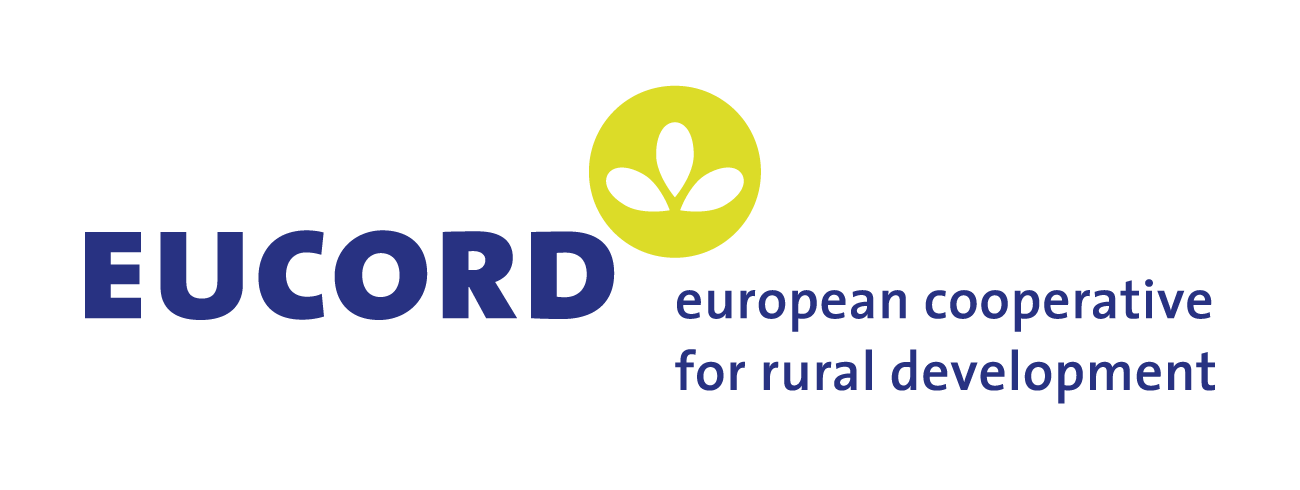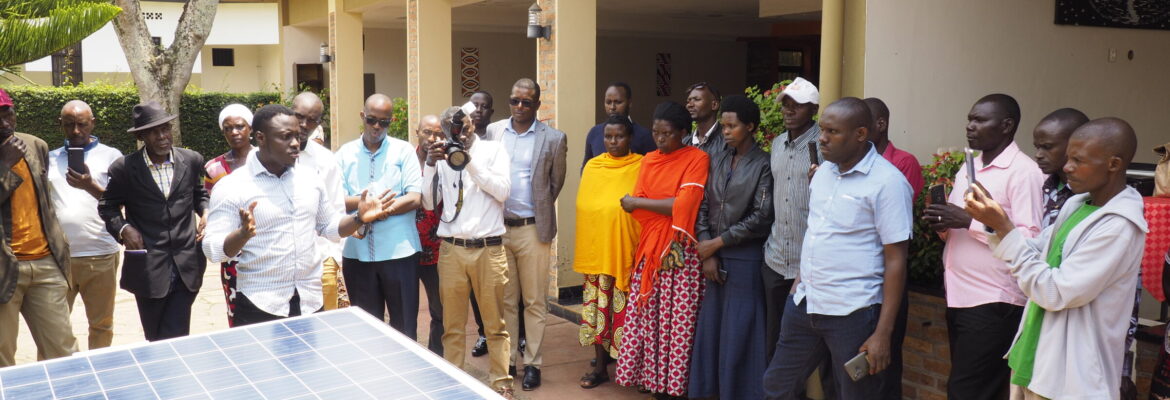EUCORD is an international non-profit organization with a mission to increase farmers’ capacity to sustainably grow quality crops that match the commercial needs of the agribusiness sector. In 2018 initiated Uhira Wunguke (Irrigate to Win) Project with a goal to pilot sustainable financing solutions for the introduction of water efficient irrigation technologies in Eastern Rwanda.
The project’s targeted 19 cooperatives in the region, helping to build collateral, which allowed them to procure the equipment through financial institutions’ loans.
It was implemented in Rwamagana and Kayonza districts by EUCORD and ICCO Cooperation (now Cordaid since 2021).
On September 8, the organization held a knowledge and sharing event at Dereva Hotel, Rwamagana with all farmers’ cooperatives involved in the project.
The event’s objective was to share the achievements and lessons learnt for the sustainability of small-scale irrigation, horticulture value chain and agribusiness in drought prone areas of Eastern Province.
It gathered all stakeholders and partners involved in the Uhira Wunguke project, including international organizations as well as public and private institutions.
Farmers testified that the project helped to address market constraints by improving the productivity of food and high value crops, introducing affordable and water-efficient irrigation technologies, and securing financing windows for farmers to gain access to much needed capital.
The overall results included strengthening resilience of agricultural activities and countering the negative impact of climate change in drought prone areas of Rwanda.
As presented by EUCORD’s Executive Director Niels Hanssens and Cordaid’s Country Representative Patrick Birasa, the project also helped to establish improved irrigation on 124 hectares, including 44 hectares under portable solar powered irrigation.
In total, USD 174,750 were mobilised for irrigation equipment, cold storage and agricultural inputs. Specifically, 18 irrigation systems were purchased by cooperative farmers, and all cooperatives were trained on irrigation use, operation, maintenance and management.
Moreover, according to the presenters, over 2,000 farmers including 982 women (48 per cent) from 19 cooperatives were trained on vegetable production and good agricultural practices and 117 farmers including 51 women (43 per cent) from 19 cooperatives were trained on financial management and marketing.
Thanks to the project, for 18 cooperatives on average, farmers were able to generate an additional net income between USD 1,363 to 7,381 USD per hectare.
Taking an example of six cooperatives that exported green beans in Europe through Garden Fresh, the project has demonstrated that smallholders can be linked profitably to export markets. Although Covid-19 blocked the international market, farmers were linked to reliable local buyers through contract farming.
Jeannette Mukarukundo, an accountant for Duhuzimbaraga Cooperative which operates in Rwamagana District testified how helpful the project was.
“The project strengthened our capacity in good agricultural practices for vegetable production and linked us with the market and finance,” she said. “Thanks to the project, we acquired irrigation equipment worth $3,944 and we can now produce vegetables in our greenhouse all year around. We are supplying at least 350 kilograms of organic cucumber to Pride Farms every week and we expect to do so for eight months.”
Olive Kabatesi, a member of the cooperative added: “Our cooperative got a loan of $6,000 from Umurenge SACCO to extend our activities and we shifted from subsistence agriculture to business-oriented agriculture due to EUCORD’s, Cordaid and Achmea Foundation’s technical and financial support.”
During the event, different stakeholders and partners pointed to Public-Private Partnership for the successful implementation of the project.
COPEDU Plc was the first Micro Finance Institution to offer agricultural loans to smallholder farmers in project intervention areas, which was risky at that time. However, due to strengthened financial and management capacity of farmers, cooperative good governance and leadership, planning and budgeting, as well as good agricultural practices, smallholder farmers became business oriented and were able to reimburse loans and access to more funds. Nowadays, the farmers are trusted by almost all micro-finance institutions and banks.
Rwanda Agriculture and Animal Resources Development Board (RAB) which was represented by Eng. Egide Kanamugire, in charge of Small-Scale Irrigation, was appreciated for its subsidy program, allowing farmers to pay only 50% of irrigation equipment costs.
To encourage the use of green energy and reduce greenhouse gas emission from agriculture, RAB is also subsidising 75 per cent of the total cost of irrigation equipment using solar power.
In addition, Ignite Power Rwanda Ltd subsidises another 20 per cent, thus farmers can obtain solar irrigation equipment paying only 5 per cent of their total value when working with the Company.
Innocent Ukizuru, the Rwamagana District agronomist, thanked EUCORD and its Uhira Wunguke Project for its contribution to district development and for transforming livelihoods of farmers in the project intervention area.
He announced that the district was ranked number one twice in district performance contract evaluation during the project lifetime, thanks to the project activities.
As the project is concluding, Jean Claude Muhirwa, EUCORD Project Coordinator, urged farmers to take advantage of created opportunities in access to irrigation, access to market and access to finance and scale up their activities.
He also asked them to sustainably manage the acquired infrastructure, such as irrigation equipment, postharvest handling infrastructure (including solar dryers and cold rooms) and strengthen existing operational and maintenance funds.
More about EUCORD
EUCORD is an international non-profit organization with a mission to increase farmers’ capacity to sustainably grow quality crops that match the commercial needs of the agribusiness sector and, in doing so, increase food security, develop the private sector and improve the livelihoods of rural communities.
EUCORD has been active in Rwanda since 2014 and successfully implemented various agriculture and climate change adaptation and mitigation related projects, such as Community Revenue Enhancement through Agricultural Technology Extension(CREATE) project, the Uhira Wunguke Project and Growing with Change Project in drought prone areas of Eastern Province, under the Rwanda Green Fund.
Further, it has implemented a joint EUCORD-FAO Project to increase capacity of Smallholder farmers in Rulindo to supply fresh agricultural products to markets in Rulindo and in Kigali. The next project on Sunflower value chain promotion will target Kayonza, Rwamagana, Rulindo and Ruhango Districts.


Leave a Reply